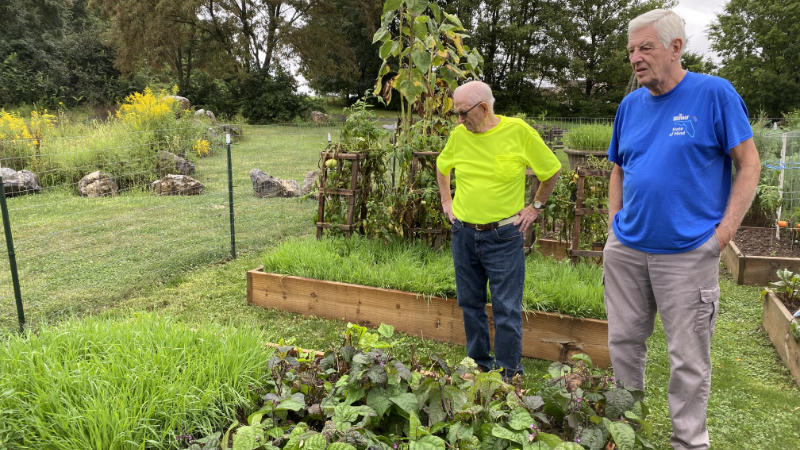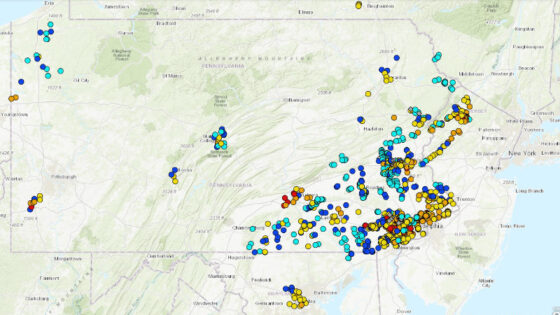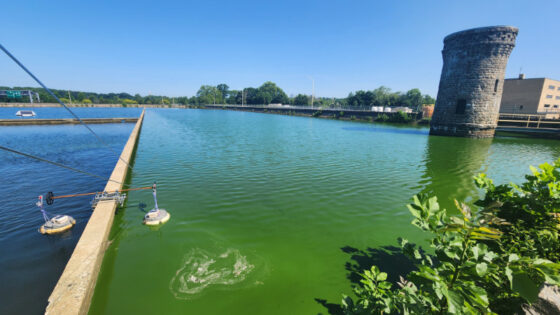At Ages 100 and 80, Two Retirees Plant Their First Cover Crop and Build Soil Health
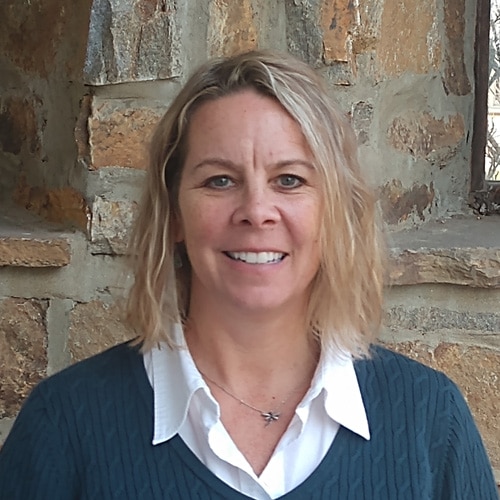
By Lisa Blazure
Age is just a number for two retirees, who aren’t hesitant to try something new. Don Ace, 100, and Max Stoner, 80, started a community garden at their retirement community, The Village at Penn State, four years ago, providing individual gardening opportunities for 10 village residents. While Ace has decades of farming and home garden experience, he just recently delved into planting cover crops.
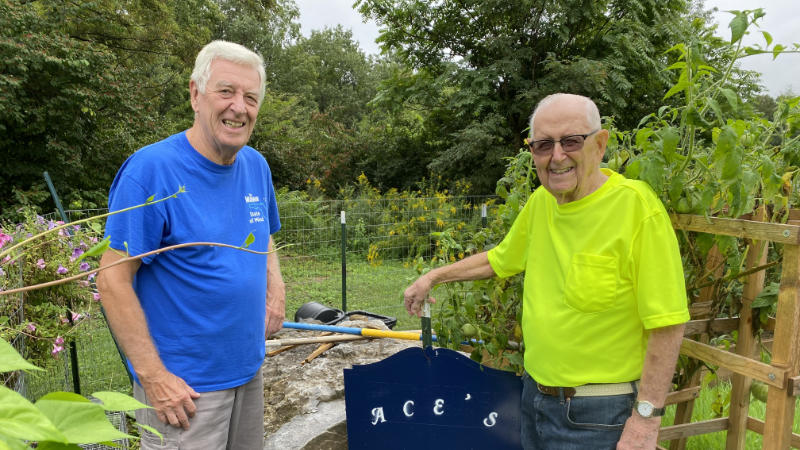
Lisa Blazure, soil health coordinator for Stroud Water Research Center and the Pennsylvania Soil Health Coalition, is related to Stoner by marriage. She manages her own garden with cover crops and no-till techniques and had suggested to Stoner that he and Ace try cover cropping.
So Stoner bought a bag of oat seed, and the two men were on their way.
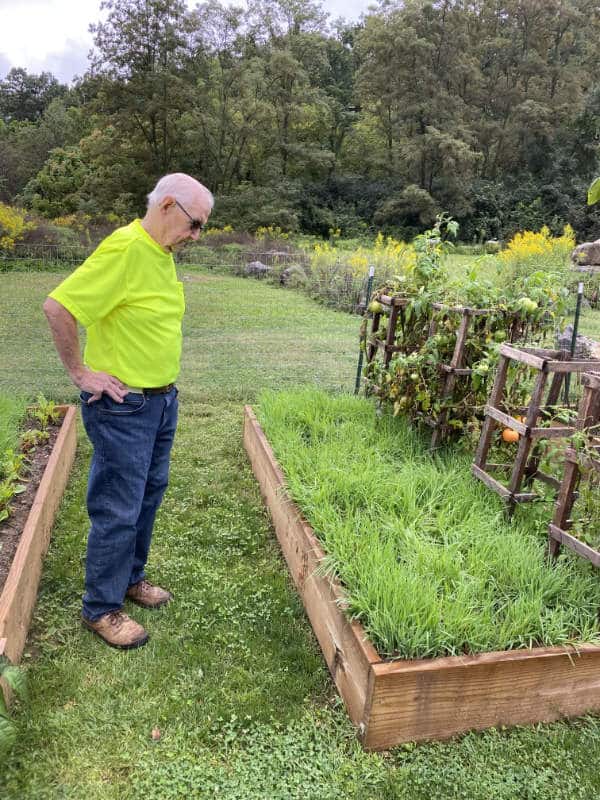
Ace said, “Max and I have four raised beds where we planted the oats. As others saw what we were doing and the nice new growth in the fall, they wanted to try it too. So now, all but one of the 13 raised beds has oats growing.”
Ace shared, “We like the idea that the oats will die over the winter, and we don’t need to use an herbicide to kill it in the spring. We’re hoping that the mulch layer after it dies will help with weed control next spring.”
According to Blazure, oats are an excellent crop for the soil because they support beneficial mycorrhizal fungi populations and alter the chemistry of the soil to help plants better absorb nutrients.
Ace has a long history in agriculture. Born in 1923, he grew up on a 25-cow dairy farm in rural Susquehanna County. He walked a mile and a half each way to school from the fourth to 11th grade. On the farm, they planted winter wheat for chicken feed and oats for the horses. They also planted red clover as a nitrogen source for the corn. And in another unfathomable way of life, the 20 acres of corn they grew each year was hand planted and hand harvested for silage. His education at Penn State was interrupted by World War II, when upon enlisting, the Army sent him back to the family farm to serve his country by keeping milk in production.
He resumed his college education after the war and graduated with a degree in dairy nutrition. For his first job, he was a county agent for Penn State Extension. After a brief stint in the private sector working for the American Breeders Service, he returned to Penn State’s dairy center as the herd nutritionist. By the time he retired in 1984, he was the department head.
Around the time of his retirement, no-till planting was gaining momentum in Pennsylvania. But it would take a couple more decades for cover crops to become mainstream. Today, cover crops are used in home gardens as well as on farms. And Don Ace and Max Stoner have proven that you’re never too old to learn and try new things.
